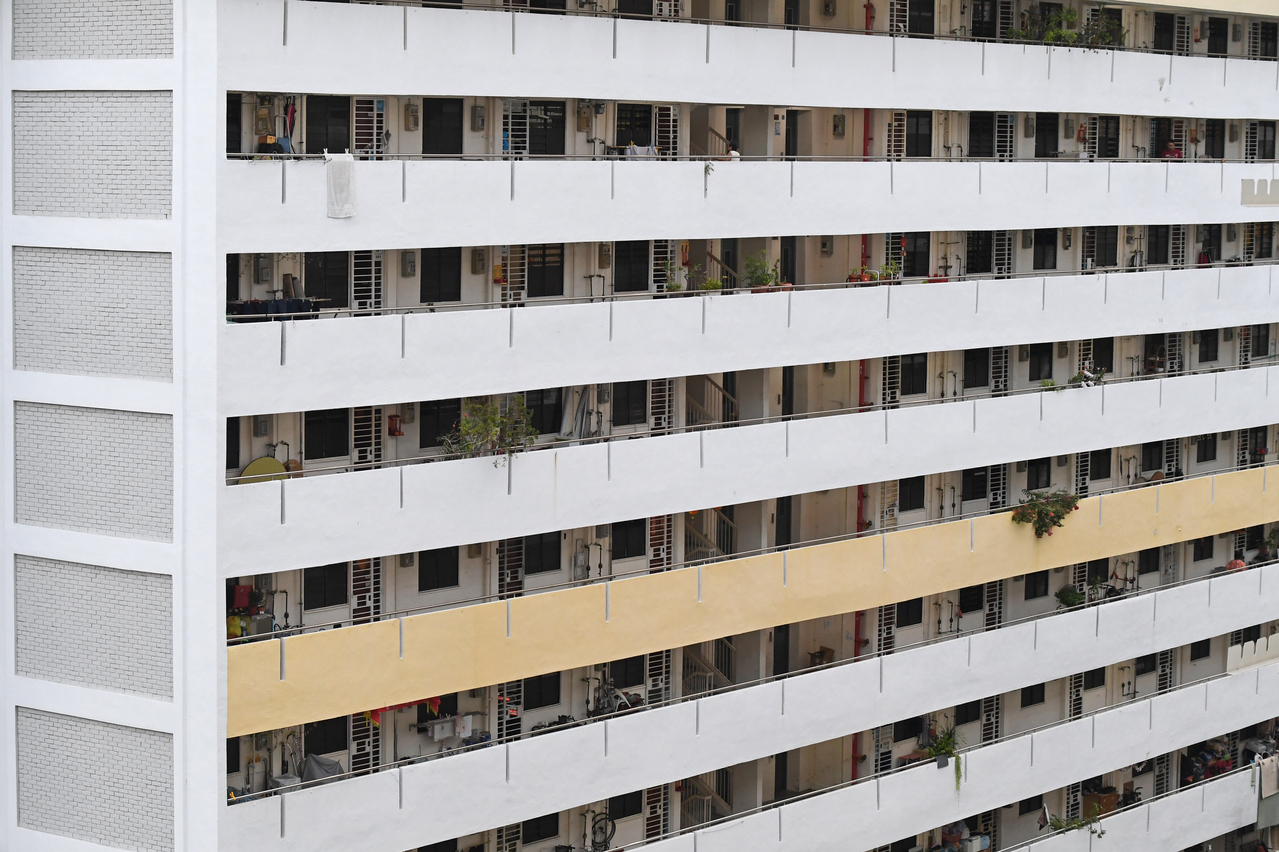askST: Can new husband move into wife's flat when her ex-hubby lives there?
Sign up now: Get ST's newsletters delivered to your inbox

The current flat owned by the wife and her ex-spouse needs to be disposed of.
ST PHOTO: DESMOND FOO
SINGAPORE - askST Law seeks to address various legal issues faced or raised by affected parties.
This inaugural column dwells on a nagging problem in dealing with a jointly owned HDB flat post-divorce.
Q: My wife and I married in Singapore last year but she continues to live in an HDB flat jointly owned with her ex-husband. I am told I am not eligible to buy a flat on my own because they have not disposed of their flat after their divorce in 2015. I now live separately in a rented room and meet my wife but not in her flat.
Am I legally allowed to go and live in the flat as I am the legal husband and she is my wife? Her ex-spouse knows she has remarried.
A: The husband does not have a right to reside in the HDB flat of his spouse as he is not the owner listed in the title deeds, said family lawyer Beatrice Yeo, managing partner of Yeo & Associates.
"He does not acquire the automatic rights to live there by virtue of marriage. He was also not given a licence or permission from the owners to go in to stay. His rights to purchase a HDB flat with his wife is also compromised as HDB does not allow one person to own two flats," she added.
Ms Yeo said the current flat owned by his wife and her ex-spouse needs to be disposed of as a matter of law as the divorce would have meant the breaking up of the family nucleus which had been the basis for the purchase of the flat.
It can either be sold in the open market or to either of the ex-spouses.
"By continuing to live in the flat, the divorced couple would have potentially breached HDB rules and the new husband can approach a lawyer to formally correspond with the parties' divorce lawyer in an attempt to inform them of their obligation or formally complain to the HDB.
"Based on past experience, the HDB will issue notice to repossess the flat usually within three months should the parties refuse to sell the flat or to effect transfer in further breach of any court order."
Ms Yeo added that the problem faced by the reader is one variation of a common scenario she had encountered in her work.
"Commonly, even after a court order is out, an ex-spouse may continue living in the matrimonial home and refuse to move out for various reasons. Some may have financial difficulty in getting a place to stay while others refuse to change environment having lived in the flat for long time and some simply just stay put to spite or exact revenge on the other ex-spouse," she said.
"Some may refuse to sign the relevant conveyancing documents and this can usually be cured by applying to court for the judge to sign on the conveyancing documents to complete the sale on behalf of the defaulting uncooperative ex-spouse.
"Court orders must be drafted concisely to take care of all these consequences that may or may not happen. DIY divorces or court orders not drafted by lawyers often have important clauses missing," she added.
"The applicant would then have to approach the Family Justice Courts to vary the court order and include the missing clause."


